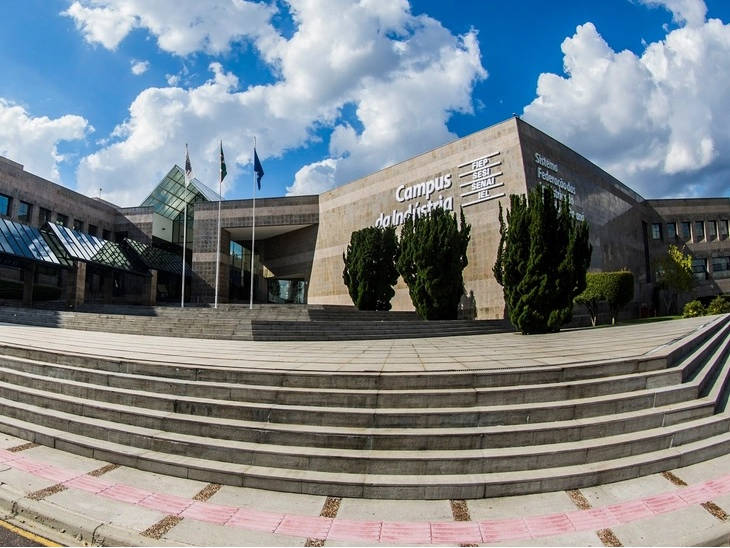
 Environment
Environment
Theme will be discussed at a seminar, with the launch of a state project
T&B Petroleum/Press Office
“We are experiencing one of the most severe climate crises in human history in the last 200 years. Not the biggest in the history of the planet, because surely our planet has already lived through several climatic crises and some certainly more chaotic and catastrophic than this one. But from the point of view of our species, from the point of view of humanity, it's the biggest we've ever faced. According to thousands of scientists and scholars, and according to UN multilateral bodies and institutes, this is an extinction crisis”, says Carlos Alberto Tavares Ferreira, president of Funtafe – a foundation that develops activities related to ecoculture, education, science and the environment. He will chair the ESG Panel I – Challenges and Prospects of ESG Financing and Carbon Credits in the Context of Green and Blue Economies at the Executive Seminar on ESG Practice and Sustainability. ”This climate change could cause the extinction of a great biodiversity of fauna and flora. Several biomes and great diversity of species are at risk of extinction, including a great risk to the human species itself.”
The Seminar will take place on October 14, from 8:00 am to 5:30 pm, at the Caio Amaral Gruber Auditorium, at the Fiep Industry Campus, at Rua Comendador Franco, 1341, in Curitiba. According to the general coordinator, Bruno Kaesemodel, the event is aimed at companies, government areas and students and is being promoted by three relevant institutions in the matter, which are Paraná Metrologia, Unilivre – Universidade Livre do Meio Ambiente, and Sesi- PR – Social Service for Industry. Registration is free and can be done through the website www.unilivre.org.br, through social media (@unilivre) and/or LinkedIn or directly at: unilivre.org.br/evento-seminario-executivo-de-esg-e -sustainability. For more information, call (41) 99922-5595, or email unilivre@unilivre.org.br.
The acronym ESG (Environmental, Social and Governance) stands for environmental, social and governance issues. One of the related topics is the mitigation of greenhouse gases through the so-called “carbon footprint”. The speaker explains that it is necessary to structure and modernize production processes to reduce the degradation caused by humans in the environment and create mitigation measures. “Carbon credits are instruments, mechanisms and tools for generating values and resources that effectively promote socio-environmental protection, recovery and preservation. Today, carbon credits, ESG and the climate crisis are inseparable words and themes, there is no way to talk about or deal with one without talking about and dealing with all of them”, he points out.
But, how to mitigate carbon footprints, for example? “The good thing, the ideal thing is that we don't pollute, or that we manage to self-mitigate our own footprints, but as this is technically and practically impossible in everyday life, carbon credits are an important socio-educational and punitive instrument for those who pollute a lot and who still they cannot eliminate the negative impacts they cause on the environment and the planet. Therefore, it is essential that the Northern Hemisphere, which was and is the largest generator of greenhouse gas emissions, bear the costs of socio-environmental recovery and preservation, in other proportions and measures, but in the same circle of reflection, the same something happens with productive and business structures, which affect the community and the biomes where they are inserted.”
Based on this kind of fine paid by those who pollute the most, carbon credits would be resources invested in preserving the environment. “These are resources to be used in preservation, the waters we drink, the soils that feed us and the forests, rivers and seas that generate oxygen and life.”
Paraná project
Ferreira reports that there are efforts in various parts of the world, such as Europe, China and the United States, which have already adhered to the agenda of conscious use of the planet's resources and seek alternatives to the large consumption of fossil fuels, one of the biggest villains. But, according to him, Brazil is in the opposite direction: there has been some progress in social awareness, but there is a lack of regulation, legislation and good will. “Every human being, every Brazilian needs to understand that being an environmentalist is not being left or right, but being responsible with life, with our children and with the next and future generations.”
The responsibility, says the speaker, belongs to society, but also to the individual and to each organization. “Each of us must seek to understand and mitigate our footprint and equally our companies and businesses. That's what ESG is for, to understand the risk of the business and to think about how we can work to adjust and balance each of the items on the tripod of our company or venture.”
Ferreira announces that Paraná should take the lead in the country and during the event the first steps will be launched for the “Projeto Paraná NET Zero”, with actions that can be adhered to by companies in the state. “We believe that if we truly implement ESG in all industries and companies in the state, and if we have the support of our governments, we can raise awareness among our population so that every citizen and individual will have zero carbon footprints in the coming years”, he considers.
Contact us